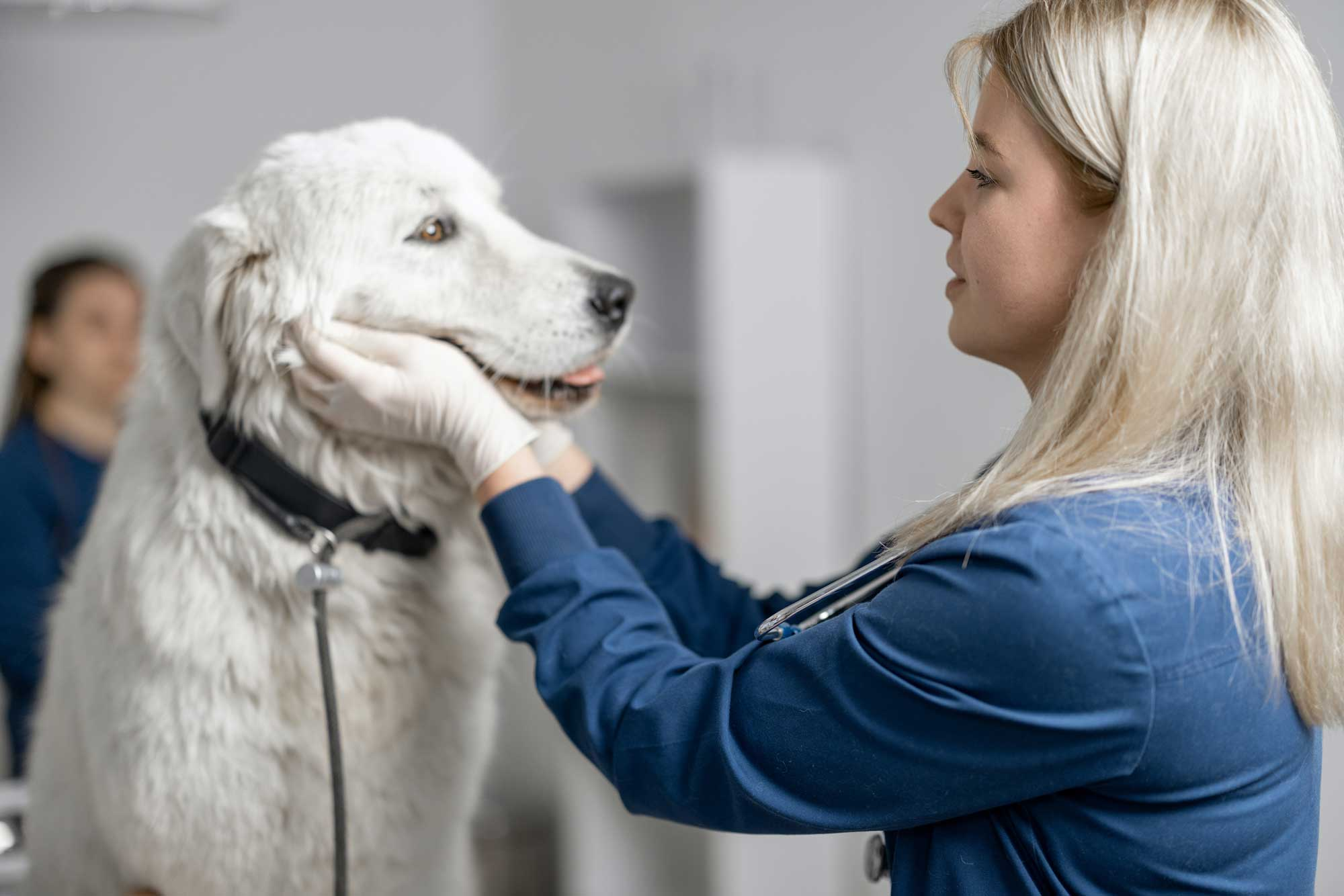Learn More

Renowned Integrative Veterinarian Dr. Judy Morgan shares her expert insights on Legacy Biome FMT—why it stands out, who it helps, the conditions it addresses, and her recommended dosing guidelines.
Why FMT?
Canine FMT (Fecal Microbiota Transplant) treatment involves transferring fecal matter from a healthy donor dog to a recipient dog's gastrointestinal tract to restore the balance of healthy gut bacteria. Here are some of the main benefits of canine FMT treatment:

Canine FMT treatment has been shown to be effective in treating various digestive disorders in dogs, such as inflammatory bowel disease, chronic diarrhea, and Clostridium difficile infection.

The gut microbiota plays a crucial role in maintaining overall health in
dogs. Canine FMT treatment helps improve the balance of gut bacteria,
which can lead to better digestion, absorption of nutrients, and a
stronger immune system.

Antibiotics can disrupt the balance of healthy gut bacteria in dogs,
leading to various health issues. Canine FMT treatment can help reduce the need for antibiotics, thereby minimizing the risk of
antibiotic-associated side effects.

Canine FMT treatment is a relatively cost-effective treatment option compared to other treatments for digestive disorders in dogs, such as long-term antibiotic therapy or surgery.

Canine FMT treatment is a safe and minimally invasive procedure that can be performed on an outpatient basis, with few reported side effects.
Canine FMT treatment has been shown to be effective in treating various digestive disorders in dogs, such as inflammatory bowel disease, chronic diarrhea, and Clostridium difficile infection.
The gut microbiota plays a crucial role in maintaining overall health in
dogs. Canine FMT treatment helps improve the balance of gut bacteria,
which can lead to better digestion, absorption of nutrients, and a
stronger immune system.
Antibiotics can disrupt the balance of healthy gut bacteria in dogs,
leading to various health issues. Canine FMT treatment can help reduce the need for antibiotics, thereby minimizing the risk of
antibiotic-associated side effects.
Canine FMT treatment is a relatively cost-effective treatment option compared to other treatments for digestive disorders in dogs, such as long-term antibiotic therapy or surgery.
Canine FMT treatment is a safe and minimally invasive procedure that can be performed on an outpatient basis, with few reported side effects.





What Is Gut Health?
A dog’s gut microbiome is the foundation of good health and that occurs when there is a healthy balance between the good (helpful) and bad (potentially harmful) bacteria and yeast in their digestive system. In humans, clinical study has shown that 80% of the immune system is in the gut, and the majority of the body’s serotonin (“happy neurotransmitter”) is produced in the gut. We believe this is a similar situation with dogs. An unhealthy gut for dogs means that not only is their gut digestion unhealthy but so is their immune system. A non-functioning immune system means a dog is more likely to get sick. Canine gut health can affect their immune system, energy levels, and even organ function – so achieving gut health will help to ensure a healthy, happy, and active life.

What Factors Affect A Dog’s Gut Health?
- Age
- Disease
- Poor nutrition can harm the beneficial bacteria in a dog’s gut contributing to or cause inflammation throughout the body.
- Antibiotics decrease the diversity of bacteria within the gut, which can significantly impact many aspects critical to health and well being
- Environmental factors

Why Is A Dog’s Gut Health So Important?
A healthy gut helps in the avoidance of sickness and it aids in the digestion of the foods the dog eats helping the dog better absorb nutrients and vitamins needed to fuel and maintain a healthy body, coat and energy. In addition, a healthy gut helps maintain a healthy balance of serotonin and hormones all of which affect your dog’s mood and disposition. The composition of a healthy gut also has significant positive effects on immune function, and regulates the local production of antibodies which is so beneficial in protection against disease and sickness

